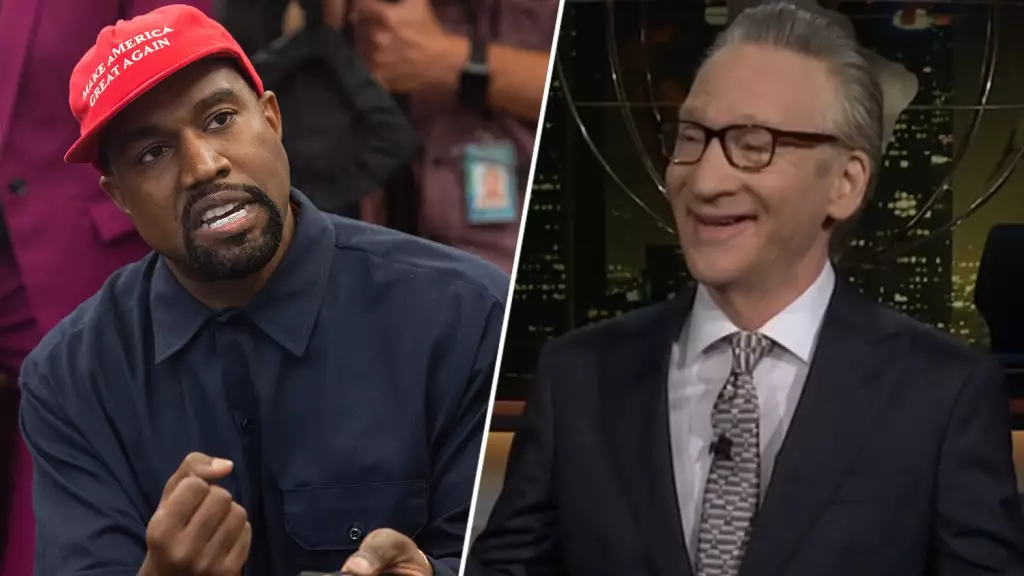In recent weeks, Kanye West, now known as Ye, has re-entered the public sphere with a controversial fervor that has both alarmed and intrigued fans, commentators, and the general public alike. His re-emergence has been marked by a wave of incendiary comments, especially his recent antisemitic remarks that have drawn widespread condemnation. This behavior raises complex questions about celebrity influence, mental health, and the responsibility of public figures in today’s society.
Comedian Bill Maher, on his show “Real Time,” did not hold back in addressing Ye’s troubling comments, which included a bizarre declaration of admiration for Adolf Hitler and a professed alignment with Nazi ideology. Maher’s commentary reflects a broader unease within the entertainment industry regarding the content and implications of West’s social media activity. His comments echo the sentiments of many within the Jewish community and beyond, who perceive Ye’s rhetoric as not just reckless but dangerously inflammatory. Maher jokingly suggested that West might be “trolling,” but the ramifications of his words are far from a laughing matter.
In light of these events, the American Jewish Committee (AJC) has vehemently condemned West’s statements. They emphasize the responsibility that comes with having a public platform, particularly when advocating against antisemitism. The organization expressed concern over the potential normalization of hate speech, especially among celebrities with significant followings. They remind us that unchecked hate can proliferate quickly, particularly in digital spaces, where misinformation and hate speech spread like wildfire. This call to action highlights the need for fellow public figures and influencers to vocally oppose such narratives instead of remaining silent.
Interestingly, this isn’t the first time Kanye West has found himself embroiled in controversy surrounding antisemitism. After a previous outburst in 2022, he issued an apology to the Jewish community, stating his regret and expressing a commitment to learning from his mistakes. However, the cyclical nature of his public remarks raises concerns about the effectiveness of such apologies and whether they are sincere or merely reactive. It prompts a reevaluation of the processes of accountability and growth within the celebrity culture.
The Bigger Picture
Kanye West’s resurgence serves as a case study of the intersection between celebrity, mental health, and societal influence. While advocates for mental health awareness must consider the pressures faced by figures like West, we must also critically evaluate the impact of their words. As antisemitism surges globally, the necessity for a unified stance against hate becomes increasingly pressing. In a world yearning for understanding and healing, public personalities like Ye must reconcile their influence with the responsibility of wielding it wisely. The question remains: As we follow stories of public figures like Kanye West, how do we encourage accountability while fostering genuine conversations about mental health and societal change?

